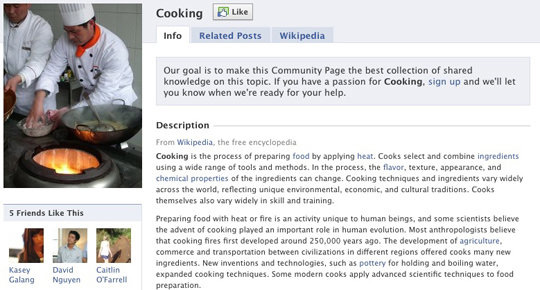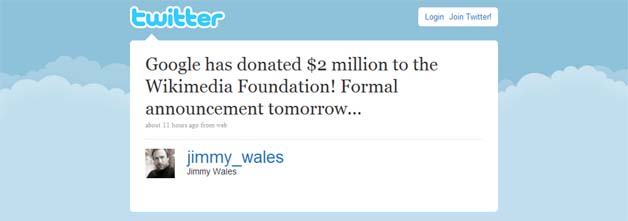Update: The new design is now being made available for nine more langauges: Japanese, Spanish, German, French, Russian, Italian, Polish, Portuguese, and Dutch. The full announcement is here.
Original Article: The Wikimedia Foundation announced its first ever "major initiative" involving the Wikipedia interface. Wikipedia as well as Wikinews, and Wikimedia Commons are getting a big overhaul.
"That means that hundreds of millions of people around the world will now experience an easier to use, and more importantly, easier to edit Wikipedia," says Naoko Komura, on behalf of the Wikimedia User Experience team. "Our most recent interface launch, on Wikimedia Commons, was a great success with continued adoption by over 91% of Commons contributors. Over the next few weeks, the new interface will cascade to all language Wikipedias."

The New Stuff:
- Look and feel: We’ve introduced a new theme we call “Vector” which makes essential functions easier to find.
- Navigation: We’ve improved the navigation for reading and editing pages. Now, the tabs at the top of each page more clearly define whether you’re reading or editing a page. There’s also a collapsible navigation for the left sidebar that hides items that aren’t used often, but allows them to continue to be easily accessible.
- Editing improvements: We’ve reorganized the editing toolbar to make it easier to use. Now, formatting pages is simpler and more intuitive. And we’ve introduced a table wizard to make creating tables easier. You’ll also discover a new find and replace feature to simplify page editing.
- Link wizard: An easy-to-use tool allows you to add links to other pages on Wikipedia, or to pages on external sites.
- Search improvements: Search suggestions are now improved to get you to the page you are looking for more quickly.
- Pediapress book creator: Create a book by selecting Wikipedia articles and adding them to the Book Creator. Your articles will be turned into a PDF (or OpenDocument) file so you can easily take Wikipedia wherever you go.
- Updated Puzzle globe and wordmark: The well-known Wikipedia globe and wordmark have been enhanced and improved. We’ve introduced Linux Libertine, an open source typeface to help support the creation of hundreds of localized Wikipedia wordmarks, and the internationally-recognized puzzle globe has been recreated in 3D and includes even more languages.
The editing process has had a great deal of criticism aimed at its usability. In fact, I sat in on a session at SXSW a couple months ago that was largely about this, and how it may contribute to a decline in Wikipedia editor growth. We’ll see if the new enhancements are a step in the right direction.
For those who don’t like Wikipedia’s new look and feel, they will still have the option to go to the classic look, referred to as monobook. To do so, you can just click on "take me back" at the top of the page.




